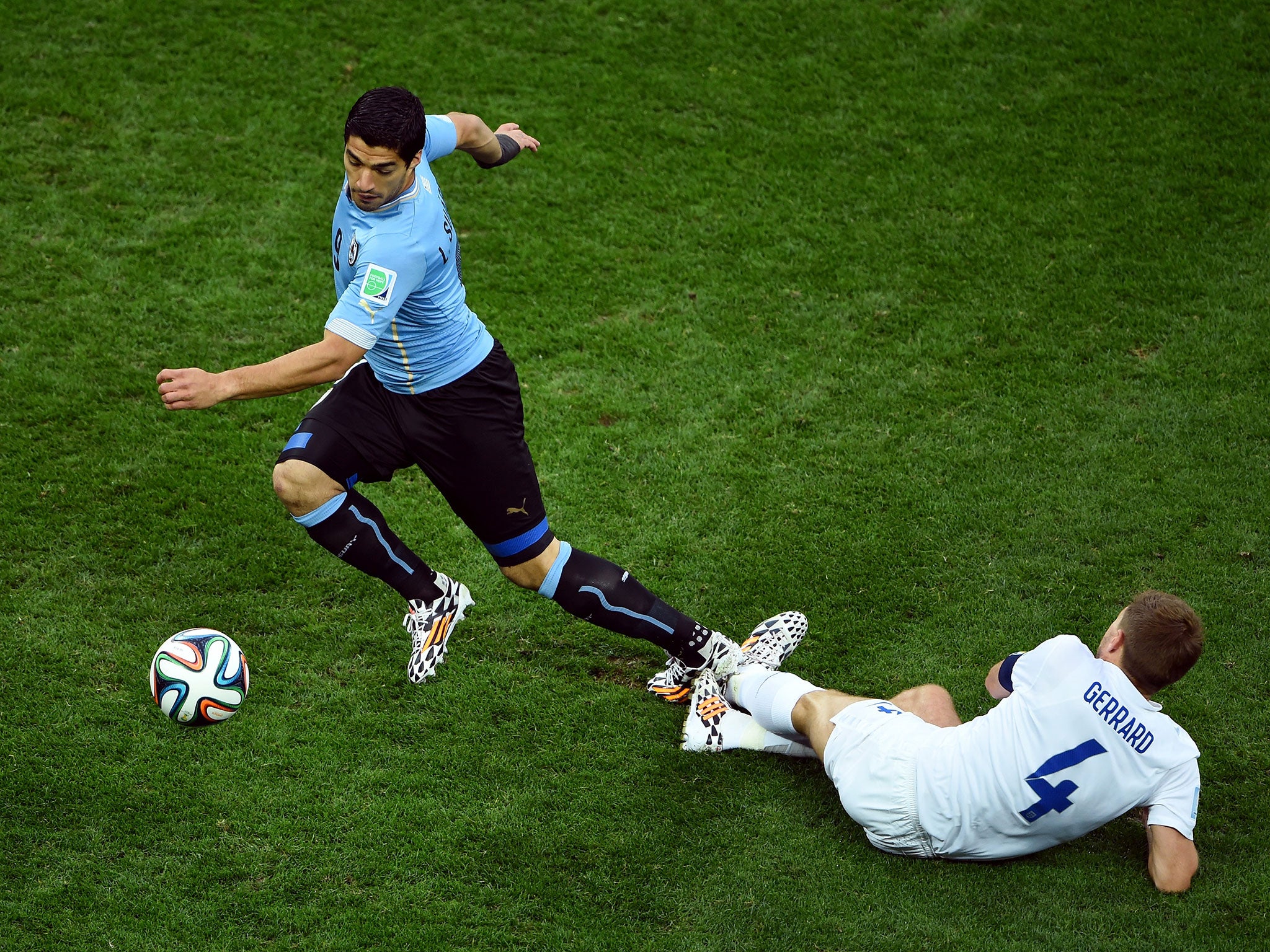Luis Suarez and Raheem Sterling prove that football can wash away the worst of sins
They're vain, arrogant and sometimes even criminal. So why do we forgive footballers?


Footballers are not easy to like. They're over-paid, over-indulged, mollycoddled man-babies. Many of them are also half-witted and arrogant. Some are also philandering scoundrels.
But I love football, and you can’t really love football without adoring footballers. For me, a Scotsman with no national team to get behind in Brazil, and my other team, England, on their way home, this World Cup is all about enjoying displays of individual brilliance and moments of redemptive glory.
The competition is now in its second week and there has already been plenty of heroism and magic. It has almost been mesmerising enough to make me forget about the alleged FIFA corruption, protests in Brazil, and what on earth is going to happen in 2022.
The World Cup offers the chance for personal redemption, an opportunity for players to overcome obstacles and wash away old sins.
These are mostly young men who have spent the season whining or underachieving, falling out managers and teammates, conniving with agents to engineer a mega-bucks move elsewhere, or have spent time off the pitch starring in an unsavoury court case or two.
The World Cup offers a release from all this, a temporary atonement from the life of a ego-driven, one-man brand. You can see it on the faces when they celebrate. The elation is uncontrived, more explosive than usual.
For one summer every four years, world-class players come closest to experiencing the pure, uncomplicated joy they felt as children on the field.
So which players merit our admiration and forgiveness? If it’s physical redemption you’re after, look no further than Luis Suarez. I know, it still hurts, but only month on from knee surgery he returned to save his nation (and sink England) with two inspired moments.
Suarez’s transgressions are well-documented: the biting of Branislav Ivanovic and the racial abuse of Patrice Evra sit at the top of his charge sheet. But when he keeps on delivering dazzling goals, the true football fan is left marvelling in awe. As one England supporter admitted after Thursday night's game: “Suarez is class...he’s a master.”
England’s own players are far from masterful, but there was still some World Cup alchemy going on this World Cup. Raheem Sterling has emerged as our attacking talisman, the one who transformed normally dull and solid England into a side with flair and adventure.
Sterling was told by his club manager to “stabilise his life” last year, after appearing in court for driving offences, as well as the assault of his ex-girlfriend (he was later cleared). But after a fantastic season, and strong performance in the World Cup, his status as a “bad boy” has now been replaced with "rising star".
There's also Yaya Touré, the Ivory Coast captain who moaned last month that he wasn’t being paid enough attention by his club, Manchester City. (To borrow a phrase from Mad Men’s Don Draper: “That’s what the money is for”.)
Despite my best efforts to begrudge him, there is something so compelling about the laughably casual ease with which Touré wanders past opposition players.
Now take Lionel Messi: the best player ever to play the beautiful game. There is no fairy-tale back story. He grew up comfortably in the suburbs of Rosario before moving to Barcelona as a teenager. Less sympathetic still, Messi’s father remains under investigation over tax evasion to the tune of £3.2million. But I really I don’t care about Messi’s tax affairs.
Messi exists only to play football. He is there to electrify the crowds as he dances toward the opposition goal, to rouse that weird, primitive part of yourself which has nothing to do with judgment, priorities or logic.
In truth, the reasons I adore particular players are often flimsy. They are mostly to do with the way they caress the ball or pick out a pass.
But what happens on the pitch is a realm suspended from the real world. It resists all the ordinary reasons we might make assessments on morality or character.
Footballers are not easy to like. They are not supposed to be liked. But they exist to be adored.
Join our commenting forum
Join thought-provoking conversations, follow other Independent readers and see their replies
Comments
Bookmark popover
Removed from bookmarks